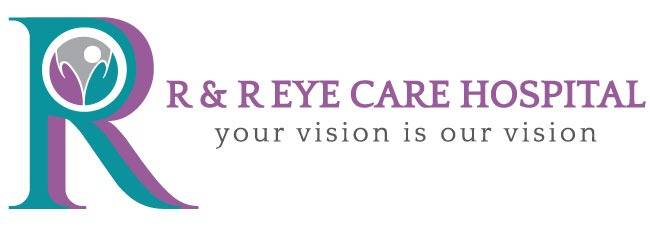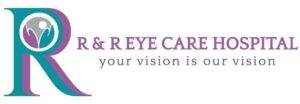Vision is one of our most precious senses, yet it’s often taken for granted until problems arise. What many people may not realize is that proper nutrition plays a significant role in maintaining good eye health and preventing vision-related issues. A diet rich in specific vitamins and minerals can help protect your eyes from damage and improve overall eye function. In this blog, we’ll explore the impact of nutrition on eye health and identify the best foods to boost your vision.
Understanding Eye Health and Nutrition
Our eyes, like the rest of our body, require essential nutrients to function properly. Several vitamins and minerals are crucial for maintaining healthy vision and preventing eye diseases such as age-related macular degeneration (AMD), cataracts, and glaucoma. These nutrients include:
Vitamin A: Essential for maintaining the health of the retina and preventing night blindness.
Vitamin C: An antioxidant that helps protect the eyes from damage caused by free radicals.
Vitamin E: Another antioxidant that supports overall eye health.
Zinc: Plays a vital role in bringing vitamin A from the liver to the retina to produce melanin, a protective pigment.
Omega-3 Fatty Acids: Important for retinal health and reducing inflammation.
Lutein and Zeaxanthin: Carotenoids that help protect the eyes from harmful high-energy light waves like ultraviolet rays.
Foods That Boost Your Vision
-
Carrots
Carrots are well-known for their eye health benefits due to their high beta-carotene content, which the body converts into vitamin A. Vitamin A is crucial for maintaining healthy vision, particularly in low-light conditions. Including carrots in your diet can help prevent night blindness and keep your eyes healthy.
-
Leafy Greens
Leafy greens such as spinach, kale, and collard greens are packed with lutein and zeaxanthin. These antioxidants help filter harmful blue light and protect the retina. Studies have shown that a diet rich in these nutrients can lower the risk of developing AMD and cataracts.
-
Citrus Fruits
Citrus fruits like oranges, lemons, and grapefruits are excellent sources of vitamin C. This powerful antioxidant helps maintain the health of blood vessels in the eyes and can reduce the risk of cataracts. Including citrus fruits in your diet supports overall eye health and boosts your immune system.
-
Fish
Fish, particularly fatty fish like salmon, tuna, and sardines, are rich in omega-3 fatty acids. These healthy fats are essential for maintaining the structure of the cell membranes in the eyes. Omega-3s also help reduce inflammation and can lower the risk of dry eyes and AMD.
-
Nuts and Seeds
Nuts and seeds, such as almonds, walnuts, flaxseeds, and chia seeds, are excellent sources of vitamin E and omega-3 fatty acids. Vitamin E is an antioxidant that helps protect the eyes from oxidative stress, while omega-3s support retinal health. Incorporating a variety of nuts and seeds into your diet can provide these essential nutrients.
-
Eggs
Eggs are a versatile and nutrient-dense food that can benefit eye health. They contain lutein, zeaxanthin, vitamin A, and zinc. These nutrients work together to protect the eyes from damage and improve vision. Consuming eggs regularly can help reduce the risk of developing eye diseases.
-
Sweet Potatoes
Sweet potatoes are another excellent source of beta-carotene, which the body converts into vitamin A. They also contain vitamin C and vitamin E, making them a powerhouse of nutrients that support eye health. Including sweet potatoes in your diet can help maintain good vision and protect against eye diseases.
-
Bell Peppers
Bell peppers, especially red and yellow varieties, are rich in vitamin C and beta-carotene. These nutrients help protect the eyes from oxidative damage and support overall eye health. Bell peppers are also hydrating and can contribute to maintaining the moisture level of your eyes.
The Science Behind Nutrition and Eye Health
Age-Related Macular Degeneration (AMD)
AMD is a common eye condition that affects the macula, the part of the retina responsible for central vision. Studies have shown that a diet high in antioxidants such as vitamin C, vitamin E, lutein, and zeaxanthin can lower the risk of AMD. The Age-Related Eye Disease Study (AREDS) found that participants who took high doses of these nutrients had a reduced risk of progressing to advanced AMD.
Cataracts
Cataracts occur when the lens of the eye becomes cloudy, leading to impaired vision. Antioxidants such as vitamin C and vitamin E can help prevent the formation of cataracts by protecting the lens from oxidative damage. Research indicates that individuals with higher intakes of these vitamins have a lower risk of developing cataracts.
Dry Eyes
Dry eyes can be caused by a variety of factors, including inflammation and a lack of moisture. Omega-3 fatty acids have anti-inflammatory properties and can help improve the symptoms of dry eyes. Consuming foods rich in omega-3s, such as fish and flaxseeds, can help maintain healthy tear production and reduce dryness.
Tips for Maintaining Eye Health Through Nutrition
Eat a Balanced Diet:
Ensure your diet includes a variety of fruits, vegetables, lean proteins, and healthy fats. This diversity will help you get all the essential nutrients needed for eye health.
Stay Hydrated:
Drinking plenty of water is important for maintaining the moisture balance in your eyes and preventing dryness.
Limit Processed Foods:
Processed foods often contain unhealthy fats and sugars that can contribute to inflammation and negatively impact eye health.
Take Supplements if Needed:
If you struggle to get enough nutrients from your diet alone, consider taking supplements for vitamins A, C, E, zinc, and omega-3 fatty acids. Consult with a healthcare professional before starting any new supplements.
Regular Eye Exams:
Regular eye exams can help detect potential issues early and ensure your eyes are healthy. Discuss your diet and any supplements you are taking with your eye care professional.
Conclusion
Good nutrition is essential for maintaining healthy vision and preventing eye diseases. By incorporating a variety of nutrient-rich foods into your diet, you can support your eye health and reduce the risk of conditions such as AMD, cataracts, and dry eyes. Remember to eat a balanced diet, stay hydrated, and consult with a healthcare professional about any dietary concerns. Prioritizing your eye health through proper nutrition is a simple yet powerful way to protect your vision and enhance your overall well-being.




Leave A Comment